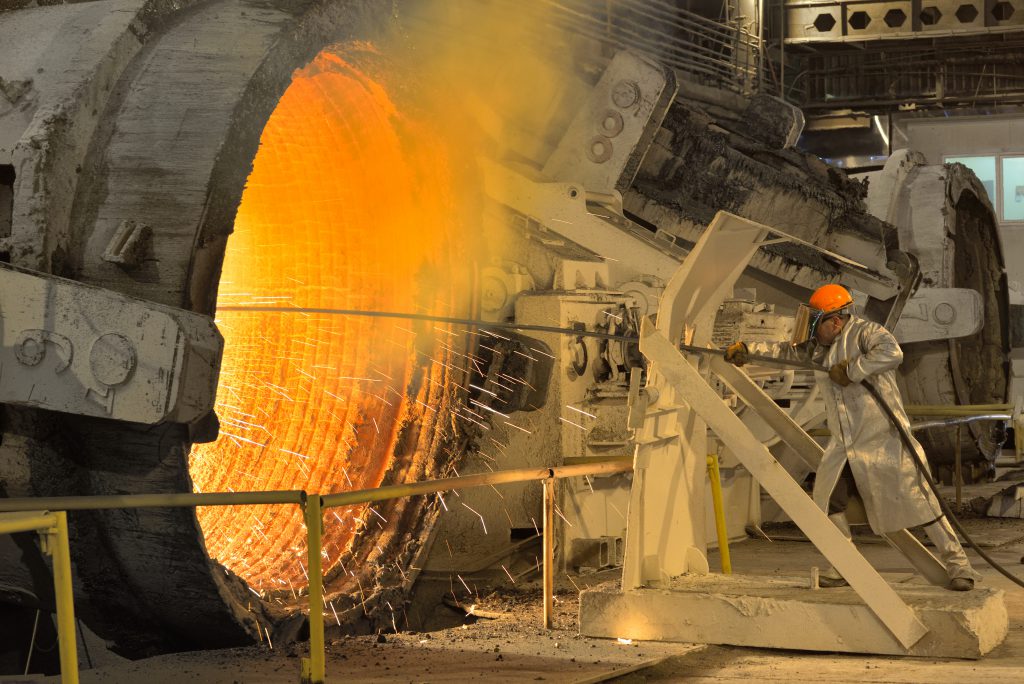- Write by:
-
Wednesday, August 10, 2022 - 11:15:48
-
314 Visit
-
Print

Mining News Pro - Shrinking steel stocks in China, partly because of its policy to curb annual output to limit emissions, are also prompting the resumption of blast furnace operations.
According to Mining News Pro - On weekly reports we are trying to put an scoop on the metal market and find out what is happening in the global market.
Iron ore price rises on improved China steel margins
Iron ore prices rose on Monday, extending their gains as improved steelmakers’ margins in China encouraged mills to gradually restart idled blast furnaces and boost imports of the steelmaking ingredient.
Hopes that steel output curbs in China to meet decarbonization goals will be less strenuous in the second half of the year also supported iron ore prices.
According to Fastmarkets MB, benchmark 62% Fe fines imported into Northern China were changing hands for $110 a tonne Monday morning, up 2.7%
Iron ore’s most-traded January 2023 contract on China’s Dalian Commodity Exchange ended daytime trade 4.3% higher at 737.50 yuan ($109.06) a tonne.
China’s iron ore purchases in July rose 3.1% from a year earlier and 3% from June as steel margins and prices rebounded and despite concerns over weak steel demand particularly from the country’s ailing property sector.
“It was surprising to see a month-on-month lift in China’s iron ore imports given the ongoing pressure facing China’s steel sector,” said Commonwealth Bank of Australia commodities analyst Vivek Dhar.
Shrinking steel stocks in China, partly because of its policy to curb annual output to limit emissions, are also prompting the resumption of blast furnace operations.
Despite such policy, Dhar believes “the extent that China’s steel sector needs to reduce output is less onerous than the same time in 2021.”
Gold price drops after US jobs data keeps Fed on hawkish track
Gold dropped after US labor market data showed employers added more jobs in July than forecast, an indication the Federal Reserve may press on with steep interest-rate hikes to thwart inflation.
Nonfarm payrolls rose 528,000 last month, more than double economists’ estimates. The dollar rose following the data release, putting pressure on gold.
Still, bullion is now poised to end the week little changed, after earlier gains amid tension between China and US over US House speaker Nancy Pelosi’s visit to the Taiwan.
Bullion is headed for a third weekly gain, even as prices slipped on Friday, after China likely fired missiles over Taiwan during military drills. Beijing has responded aggressively to US House Speaker Nancy Pelosi’s visit to the island this week.
“Gold bulls didn’t get their green light from the jobs data with the outsized strong beat,” said Nicky Shiels, head of metals strategy at MKS PAMP SA. “Gold should remain capped below $1,800 for now, but attention will turn to the CPI.”
There were more signs that the fight to cool inflation will weigh on global growth. The Bank of England unleashed its biggest rate hike in 27 years on Thursday as it warned the UK is heading for more than a year of recession, while Cleveland Federal Reserve Bank President Loretta Mester said US interest rates need to be raised above 4%.
Spot gold dropped 0.9% to $1,775.62 an ounce at 1:41 pm in New York after earlier falling as much as 1.5%. Gold contracts on the Comex were down 0.9%. The Bloomberg Dollar Spot Index surged 0.6%. Silver fell as palladium gained and platinum was little changed.
Copper price rises on US jobs data
The copper price rose on Friday following a US jobs report that provided both good and bad news for investors.
US employers added hundreds of thousands more jobs than expected last month, suggesting the economy may not be in a recession. The data, however, undercut investors’ hope that high inflation may be close to peaking.
Copper for delivery in September rose 2.8% on the Comex market in New York, touching $3.58 per pound ($7,876 per tonne).
US factory copper orders rose in June and the service industry activity unexpectedly rebounded in July, SMM reported.
On the supply side, Europe’s largest copper producer Aurubis said on Thursday it aims to minimize gas usage in Germany and pass on surging power costs to its customers as the region’s energy crisis deepens.
The Hamburg-based company is looking to switch to alternatives like fuel oil but is bracing for a potential restriction in gas supply that could impact its sprawling industrial operations in the country.
“I’m very confident Aurubis will not be the first to be shut down,” Chief Executive Officer Roland Harings told investors on Friday.
“There are others that are more exposed than we are.” Any stoppage would be “very controlled,” he said.
Short Link:
https://www.miningnews.ir/En/News/621928
No comments have been posted yet ...